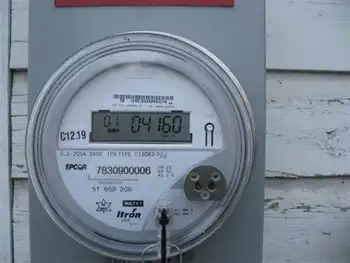Texas Power Providers Can't Set Rates Until Regulators Set `Price to Beat'
- Most Texans affected by deregulation will save a significant amount on their electricity bills after Jan. 1.
But what hasn't been decided is exactly how big a break those consumers will get when deregulation begins on New Year's Day.
So, less than a month before full deregulation begins, competing power providers are still straining at an invisible starting line.
Everyone's waiting for the Public Utility Commission to set the benchmark rates, which traditional utilities such as TXU Electric will charge in their current territories.
Most competing providers expect to lure customers with a lower rate.
The PUC is expected to decide the benchmark -- known as the "price to beat" -- this week. That decision is more than a month late.
"Until the price to beat is set, it's difficult to know how to price a competitive offer below that," said Waters Davis, president of Reliant Energy Retail Services, which will compete for customers outside its Houston-area base for the first time come Jan 1.
Numbers aren't final, but Dallas-area customers who stay with TXU when deregulation begins can expect to see their bills plummet by about 14.5 percent -- at least initially -- according to the latest estimates from the PUC.
Deregulation doesn't deserve all the credit for the decline, though.
Although TXU and other incumbent utilities affected by deregulation must cut base rates by 6 percent on Jan.1 , most of the rest of the reduction comes from a 70 percent year-over-year decline in natural gas prices, a key component of electricity costs.
The reduction offers relief to consumers still recovering from last year's record gas prices.
It's also a nice price break for those who don't want to shop for a new power provider.
Although that might be great for consumers, it's not so conducive to competition.
And experts warn that a benchmark price that's too low could derail the competing power providers -- and even deregulation itself.
If the state really wanted to encourage competition, rules wouldn't reduce incumbent providers' prices when deregulation takes effect, said William Hogan, a Harvard University professor.
Instead, the rules would tie traditional power providers' rates to spot-market electricity prices and allow them to adjust consumer prices accordingly.
"But regulators want to have the low prices and competition that come with an open market and the protection for customers that comes with regulation," he said.
Power providers and regulators have taken months to hash out the minute details of the rates, according to Brian Lloyd, electric division director at the Public Utility Commission.
"It is late, and I think our desire was to have this settled a month or two ago -- by early November at the latest," he said.
The delay has forced competing power providers to put their pricing and marketing plans on hold as they wait for a final decision on the benchmark rate.
When deregulation takes effect, incumbent utilities must cut their base rates -- frozen since Sept. 1, 1999 -- for residential and small commercial customers.
Incumbent power providers can raise or lower the price to beat twice a year to cover their fuel costs.
However, excluding fuel cost adjustments, they can't raise rates in their existing service areas for five years.
And they can't lower rates for three years, unless they lose 40 percent of their customers.
Competitors can charge less than the price to beat, though. And they say they will -- as soon as they know what the benchmark is.
Power providers expect the benchmark rates to be pretty close to the latest projections.
Still, they can't start sending out direct mail or running radio commercials until they know exactly what those rates will be.
It's even uncertain whether retail power providers will be able to offer lower prices and make a profit at the same time.
Some newcomers are already protesting the price to beat proposed by Reliant in its existing service territory.
For example, the rate would give Reliant customers in the Houston area a discount of about 17 percent and leave competitors little room to make money, they said.
"It would be very difficult for a marketer like us to compete under those prices," said Gael Doar, a spokeswoman for New Power Co., a retail power provider that signed up more than 60,000 Texas customers in the state's deregulation pilot program.
New Power and other retailers are scheduled to testify at a PUC meeting this week.
They plan to contend that it could be a lot more costly for them to do business than incumbent utilities. New Power and its colleagues said that they're starting almost from scratch.
Millions of dollars must be spent recruiting customers and hiring hundreds of employees to launch operations in Texas, they said.
"We need a price to beat that enables us to procure supply, cover our fixed costs, and have a little bit left over," said Gillan Taddune, Green Mountain Energy Co.'s president for the Texas region. "Lack of headroom leads to lack of competitors in the market."
Big price breaks from their current power provider could also dissuade consumers from shopping for even-cheaper electricity -- especially if those potential savings are small.
First Choice Power Inc. president Manjit Cheema thinks it will take additional savings of at least 10 percent to pique consumers' interest in a new provider.
He hopes the price to beat will be high enough to allow him to offer discounts at least that deep.
One thing is certain: Power providers' profits will be slim, no matter what the price to beat is.
Supplying electricity to residential customers is a low-margin business, so successful competitors will need to attract a few million customers each, said Rob McCoy, retail president of TXU Energy Services Co., the unit that will replace TXU Electric.
In Texas, "I think there is room for three, maybe four successful retail electric providers," he said. "When I say successful, I mean those who can stick it out for a long time and be a quality supplier."
That worries some consumer advocates.
They fear that residential customers won't be left with enough alternatives when the price to beat expires in a few years and incumbent power providers start setting their own rates.
Consumers shouldn't be complacent just because they are getting a great discount under deregulation now, said Janee Briesemeister, a policy analyst with Consumers Union in Austin.
"Because the worst potential effect is that you could eventually end up with an electric company with no regulation and no competition," she said.
Related News

Ontario Energy minister downplays dispute between auditor, electricity regulator
TORONTO - The bad blood between the Ontario government and auditor general bubbled to the surface once again Monday, with the Liberal energy minister downplaying a dispute between the auditor and the Crown corporation that manages the province's electricity market.
Glenn Thibeault said concerns raised by auditor general Bonnie Lysyk during testimony before a legislative committee last week aren't new and the practices being used by the Independent Electricity System Operator are commonly endorsed by major auditing firms.
"(Lysyk) doesn't like the rate-regulated accounting. We've always said we've relied on the other experts within the field as well, plus the provincial controller," Thibeault said.
#google#
"We believe that we are following…




